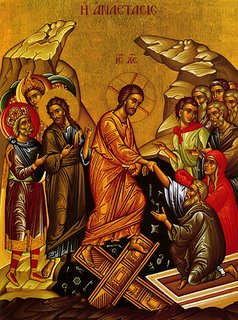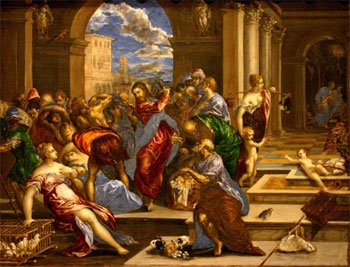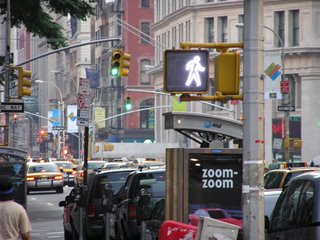
What does the Bible really say about heaven and hell? Is hell a literal place...separated from God? These are questions that Brian McClaren raises in his fictional, nevertheless theologically grounded, book,
The Last Word and The Word After That.
I found the essay by Peter Chopelas, entitled
"Heaven & Hell in the Afterlife, According to the Bible" , to be resonant with the views that McClaren weaves into his theological novel.
Peter Chopelas opens his essay with the following thesis:
The idea that God is an angry figure who sends those He condemns to a place called Hell, where they spend eternity in torment separated from His presence, is missing from the Bible and unknown in the early church. While Heaven and Hell are decidedly real, they are experiential conditions rather than physical places, and both exist in the presence of God. In fact, nothing exists outside the presence of God.
He goes on to work with the Scriptures, with historical-textual analysis, and supports this quite well I believe. Here are some of the points he makes in the essay followed by a few comments of my own:
For the Jews and early Christians, even Sheol was not separated from God. Translating directly from the Greek of the Septuagint Palms 139:7 and 8 "Where can I go away from your spirit? And away from your presence, where can I flee? If I go up into heaven, you are there. If I go down into Hades, there is your presence."So it is a gulf that exists in the heart, a spiritual gulf that causes us to experience God's loving presence as paradise or torment. A gulf that was not placed there by God, but rather created by the choices and actions of the sinner.
In many places God's presence and appearance is described as fire in the New Testament as well as in the Old. Examine for example, Matt 31:10-12, 25:41, Mark 9:49, Luke 12:49, Act 7:30, 1Cor 3:15, Heb 1:7, 12:29, Rev 3:18 and in numerous other places.So clearly everyone experiences this fire caused by the presence of God. The Bible tells us there is no place apart from God, that he is everywhere and fills all things, so how can He create a place apart from Him? Moreover, why would He create a place just to punish the ones He says He loves unconditionally? That is not the nature of a loving God.
Unfortunately, because of the political expedience of controlling an often rebellious population, corrupt rules in the West, in collusion with corrupt clergy, and adopting ideas from non-Biblical yet popular fantasy novels such as Dante's Inferno, corrupted the use of this word during the middle ages. Eventually turning a verb into a noun by popular usage, even if theologically insupportable from the Bible.Clearly, when you read the Bible in the original languages you learn that there is no place apart from God, and there is no place that God put you to punish you. What scripture reveals is that all eventually will be in the fiery presence of the Lord, and this presence will be either "eternal torment" or "comfort and glory". Judgment and paradise both come from being in God's presence.
Also totally absent from the scriptures is any hint that demons are tormenting sinners. This again comes from Dante's Inferno and other pagan concepts, not from the Bible. Because any "sinning angels" in the presence of God, are also in torment, and their power is made ineffective.It is not God's intention that his love will torment us, but that will be the inevitable result of pursuing our own selfish desires instead of seeking God.
So "hell" is not a "place" but rather a condition we allow ourselves to be in, not because of God's "justice" but because of our own selfish and sinful disobedience. In other words, we put ourselves in "hell" when we do anything other than seeking God's will. It is not that God wants to harm us; He loves us unconditionally, but torment is the result of coming into His pure presence when we are in an impure condition.Why would a God who loves us unconditionally torment us for eternity, because of an equally unbiblical notion of Divine Justice? In fact nowhere in the Bible does it explicitly state that it is God that punishes the sinners. If you put your hand in the fireplace, is it the fire's intention to punish you? Or is the torment you experience caused by your own foolish action? It is merely the nature of the fire to burn your unprotected skin.
Calvin further rationalized if God is all knowing, then He knows who will be saved and who will not even before they are born, so therefore He must have created some people just so He can torment them in Hell for eternity. This is the infamous "predestination" of Calvin, which makes God the author of evil. This is not Biblical and certainly not Christian. Ultimately this doctrine denies free will, the choice that all humans have to either pursue righteousness, or selfishness.This view of heaven and hell not being two separate places, but rather two different experience of God's presence as a result of our response to his love now is not something I have been presented with until recent years. It resonates with my understanding of God revealed in Scriptures. In my view, it seems to provide a way of understanding the eschaton and God's judgement that does not impugn God's unconditional love and mercy, and on the other hand doesn't besmirch his righteousness and holiness.
My one question is where the new heavens and the new earth fit into Chopelas paradigm (which is that of Eastern Orthodox Christianity). If all are present to God in the future outside of time and space, how are we to interpret passages such as Revelation 21:1, Romans 8:20-22, and 2 Peter 3:13. Perhaps it is something beyond our grasp, another dimension, but I think I have been moving toward the understanding that God is going to make all things new--even creation. So that which is to come is not so much some mansions, on streets of gold, up there in heaven...but also a renewed (recreated) creation.
Our view of heaven and hell, of how the Kingdom of God comes, has a huge impact on how we live and bear witness to the Gospel in the now of history. The fundamentalist view tends to write off the here and now...preaching a gospel that is primarily focused on getting people saved and made right spiritually...but little time for seeing the redemption of humanity and creation worked out in specific ways now (stewardship of environment, social justice issues, peace, feeding the poor, looking our for the alien, refugee, immigrant...). The reign of God is primarily understood as something in the future, when God will sort everything out. In the meantime, this perspective bides its time until God raptures the Church out of here and the rest of godless humanity is Left Behind to suffer.
















